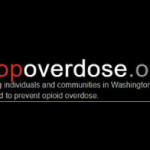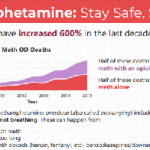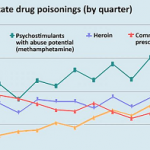News
March 30, 2021
The Potential Role of “Budtenders” in Responsible Use Education with Adult Cannabis Consumers

Cannabis legalization in Washington State dramatically increased the availability, use, and potency of cannabis products for adults 21 and older. Public health education promoting safe use for adult consumers has lagged behind these trends. Cannabis retail workers (“budtenders”) help customers select products and are knowledgeable about the store’s inventory. Those helping customers with medicinal cannabis…
March 29, 2021
New Webinars Page on StopOverdose.org

StopOverdose.org, a project from the ADAI Center for Drug Safety and Education Services Education unit, recently added a new page to host its webinar series. Webinar topics have included: Criminal legal fines and their impact on opportunity and inequality, with Dr. Alexes Harris, March 2021 Hepatitis C Treatment in WA: Lummi Tribal Health Center &…
March 19, 2021
New from the Northwest ATTC: Clinical EBP Demonstration Video Series for Telehealth

The Northwest ATTC’s new Clinical EBP Demonstration Video Series intends to demonstrate how a diverse set of clinical practitioners make use of evidenced based practices (EBP) in a telehealth environment. The impetus for these videos came from a provider survey and our organization partners who identified “Clinical Demonstration” as a needed product, especially with the recent…
March 5, 2021
UW Daily: Deaths from Fentanyl Overdose Rise in Washington
The UW student newspaper, The Daily, recently spoke to ADAI’s Dr. Caleb Banta-Green about the rise in fentanyl overdoses in Washington state. “Based on the evidence that we’ve seen, basically any pill that you’re getting not directly from a pharmacy is 99% likely to be fentanyl, not oxycodone,” Banta-Green said. “You don’t know what you’re…
March 1, 2021
Putting People First: The Why Behind ADAI’s Name Change

by ADAI Director Susan Ferguson, PhD ADAI was founded in 1973 with the goal of improving the lives of individuals and communities affected by substance use and addiction. Unfortunately, substance use and substance use disorders have long been stigmatized in our society. This, in turn, can be a major barrier for seeking and receiving medical or…
New Methamphetamine Overdose Materials & Report

ADAI and StopOverdose.org have several new materials available related to methamphetamine overdose and overamping. Report: Acute Consequences of Methamphetamine Use Among Participants of Syringe Services Programs Drug overdose deaths involving methamphetamine have risen over 600% in the last decade. The 2019 Washington State Syringe Exchange Health Survey asked syringe services program participants about nonfatal, acute consequences of…
February 10, 2021
Washington’s Overdose Deaths Increase Sharply: Fentanyl Availability a Factor

In this interview with KUOW, ADAI Principal Research Scientist Caleb Banta-Green, PhD, MPH, MSW, describes a striking increase in drug overdoses in the first half of 2020 and continuing on into the year. Fentanyl’s increasing availability, typically sold as what looks like prescription Oxycodone pills, is a major contributing factor. “The issue is that because…
February 5, 2021
Q&A with Dr. Caleb Banta-Green: Fentanyl’s Growth Among Overdoses “Stunning”

In late December, the Centers for Disease Control and Prevention reported that 81,230 Americans had died from a drug overdose in the year that ended in May 2020 — the highest total ever for a 12-month span. The report largely attributed the rise to illegally manufactured fentanyl, an opioid often found in counterfeit oxycodone pills….
February 4, 2021
ADAI’s Marijuana Research, Outreach, and Education Work, 2019-2021

The ADAI Cannabis Workgroup carries out research, outreach, and education projects that respond to emerging needs of Washingtonians in the context of legalized cannabis, with the goal of helping agencies, policymakers, and individuals make decisions and set priorities. Our 2019-2021 Interim Marijuana Research Report describes the studies, collaborative work, and information products completed during the 2019-2021 biennium…
February 5, 2020
Jail-Based Intervention Increases Post-Release Initiation of Medication Treatment for OUD

People with opioid use disorder (OUD) are frequently incarcerated and, as a result, jails house many individuals with OUD. OUD goes largely untreated during periods of incarceration. Additionally, the risk of relapse to opioid use, as well as opioid-induced overdose, is very high after release from incarceration, with former inmates having an approximately 10-fold higher…
Previous page Next page
